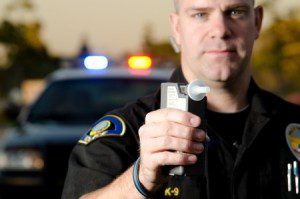 On November 13, 2018, the New Jersey Supreme court decided the Monmouth County case of State v. Eileen Cassidy. Justice Timpone wrote for a unanimous court. The principal issue was whether alcohol breath test readings could be admitted into evidence if the machines were calibrated by a thermometer that was not approved in the seminal test of State v. Chun.
On November 13, 2018, the New Jersey Supreme court decided the Monmouth County case of State v. Eileen Cassidy. Justice Timpone wrote for a unanimous court. The principal issue was whether alcohol breath test readings could be admitted into evidence if the machines were calibrated by a thermometer that was not approved in the seminal test of State v. Chun.
The New Jersey Supreme Court held in relevant part as follows: The Court considers the admissibility of breath test results produced by Alcotest machines not calibrated using a thermometer that produces temperature measurements traceable to the standards set by the National Institute of Standards and Technology (NIST).
In 2000, the State began using the Alcotest, a product of Draeger Safety Diagnostics Inc. (Draeger), to conduct breath tests. The Alcotest machine analyzes breath samples, producing blood alcohol concentration readings used to determine whether a driver’s blood alcohol content is above the legal limit. In 2004, Dr. Thomas A. Brettell developed the current calibration protocol while he was director of the State’s Office of Forensic Sciences (OFS). In 2008, the Court found results from Alcotest machines calibrated pursuant to Dr. Brettel’s protocol sufficiently reliable to be admissible in drunk-driving cases to establish a defendant’s guilt or innocence for drunk driving. State v. Chun, 194 N.J. 54, 65 (2008). The Court also required that the devices be recalibrated semi-annually to help ensure accurate measurements. Id. at 153.
During the calibration process, simulator solutions are heated to about 34 degrees Celsius, the generally accepted temperature for human breath. It is essential that the temperature of the solution be accurate in order for the Alcotest’s blood alcohol content readings to be correct. The Alcotest’s calibration procedure requires the test coordinator to insert a thermometer that produces NIST-traceable temperature measurements into the simulator solution used to calibrate the Alcotest and confirm that the calibration unit heated the solution to a temperature within 0.2 degrees of 34 degrees Celsius. When a thermometer’s temperature measurements are “traceable” to the standard measurements of the NIST, those measurements are generally accepted as accurate by the scientific community. There are two other temperature probes used during the calibration procedure. Unlike the NIST-traceable thermometer, they are manufactured and calibrated by Draeger.
The use of a particular thermometer might seem unnecessary. However, when dealing with hundredths of a percent of alcohol concentration that can be the difference between jail and lengthy drivers license suspensions, it makes sense to insist on strict standards.
